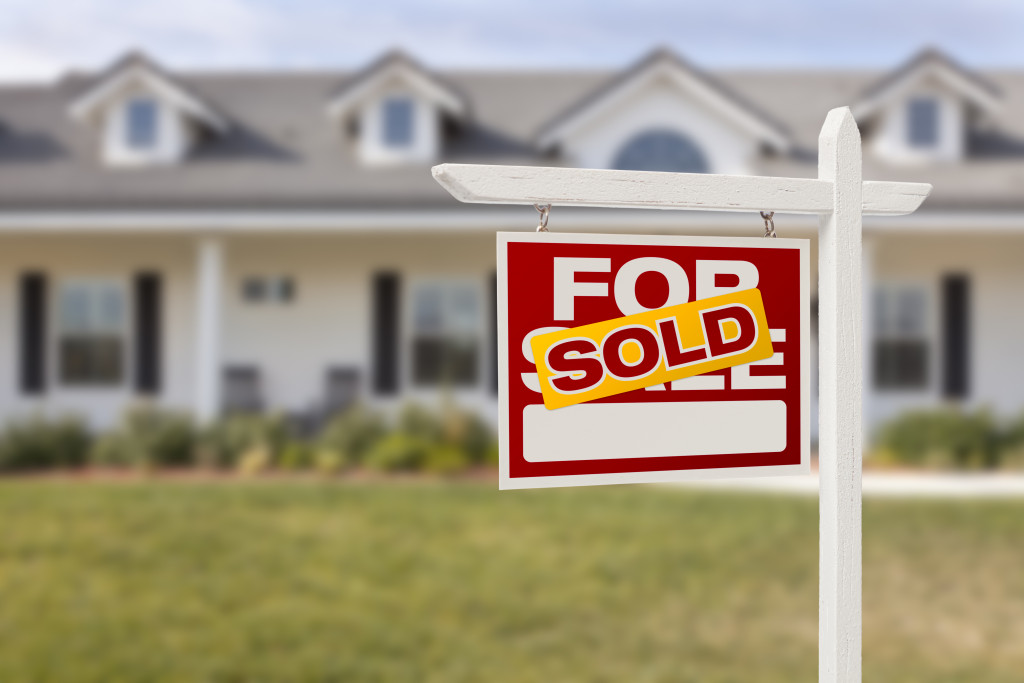• To successfully enter the real estate market, research, startup, and maintenance costs must be considered.
• House flipping is a cost-efficient option to invest in real estate, requiring money to buy the home initially and funds to pay contractors who help with the process.
• Becoming a landlord is another option, requiring an upfront cost to buy or lease the property and any necessary renovations, as well as ongoing expenses like property taxes, insurance premiums, and repairs.
• Before investing in real estate, conducting thorough research and creating a plan with realistic goals that will stay within budget is essential.
The real estate market is an incredibly lucrative industry. It’s a billion-dollar industry with a lot of potentials. But before you can begin to reap its rewards, you have to be willing and able to pay the high price tag that comes with entering it.
Many people are drawn to the real estate market by its promise of steady income, but for that income to start flowing, there are certain costs associated with getting started in real estate that must be considered.
The High Cost of Real-Estate Investments
Real estate investments can be costly. Here’s a look at these costs.
Research Costs
The first cost involved in entering the real estate market is research. To succeed in real estate, you need to know your market inside and out—from understanding current trends and consumer behaviors to knowing which neighborhoods best suit your investment strategy.
This kind of knowledge doesn’t come cheap; it takes time, effort, and money to ensure you’re well-informed about your local area. If you don’t have enough experience or expertise to do this on your own, then hiring a local expert or consultant can help fill any gaps in your knowledge—but again, this will come at a cost.

Startup Costs
In addition to research costs, startup costs may be associated with getting into real estate. These could include marketing fees (for advertising your services) to legal fees (to ensure everything is done correctly).
It’s important not to overlook these expenses as they could add up quickly if left unchecked. Additionally, if you plan on investing in properties directly rather than becoming an agent or broker, you’ll also need money set aside for things like property inspections or loan applications, as well as any necessary renovations/repairs once you’ve acquired a property.
Maintenance Costs
Finally, maintenance costs are involved in being a successful realtor or investor—and these should not be overlooked. Once you’ve made your initial investments, there needs to be ongoing maintenance performed on both the properties themselves (in terms of upkeep) and yourself (in terms of continuing education). On average, this should cost around $1 per square meter.
Maintenance costs can add up quickly if they’re not kept track of carefully and managed efficiently; making sure that all maintenance expenses remain within budget is critical here.
Cheap Ways to Get Started in Real Estate
Entering the real estate market comes with a high-entry cost, but these costs can be avoided if you know where to start. Here are some cost-efficient options when investing in real estate that won’t cost you too much.

House Flipping
Homes are expensive now, but if you want to grab one and invest in it, you should try house flipping.
Flipping a home means buying a house, fixing it up, and then selling it for a higher price later. It can be incredibly profitable to do this–but there is also the possibility of loss if you’re not careful. You’ll need money to buy the home in the first place and funds available to pay contractors and workers who will help you with the process. Always look for a fixer-upper that doesn’t require too much work. Here are a few practical tips for a successfully flipped home:
- Interior paint: Many homebuyers will look for a clean, neutral look. Ask your home interior painting service for this kind of option. They can pull it off without needing too much attention from your end.
- Exterior paint: Consider using a coating on the exterior of your house that will last longer than regular paint. It’s often more expensive but can be worth the additional maintenance cost later.
Landlord
Another option is to become a landlord. It may be more expensive than flipping a home, but it can also be incredibly rewarding. The upfront cost can include buying or leasing the property and any renovations you need to make before you can start renting it out.
Additionally, ongoing costs come with being a landlord, such as property taxes, insurance premiums, and repairs/maintenance.
Starting in the Real Estate Market
The real estate market is a lucrative industry with high entry costs that can be avoided if you know where to start. House flipping and becoming a landlord are two popular options among those looking to get into the real estate market without spending too much money upfront. Before investing, conduct thorough research and create a plan to stay within budget while still achieving your goals.

